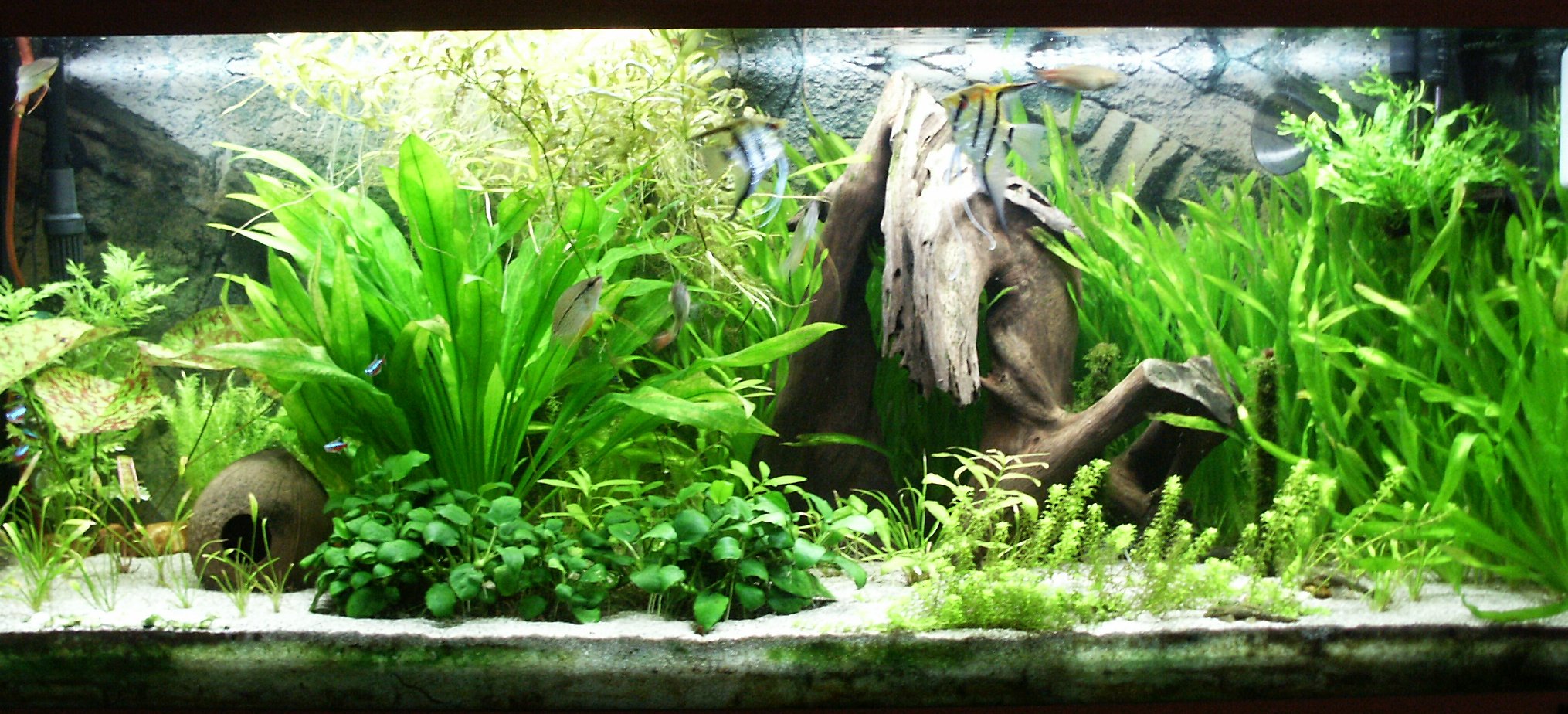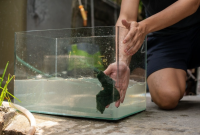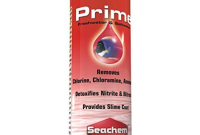When it comes to the world of aquarium keeping, Betta fish (Betta splendens) have captured the hearts of many enthusiasts. Their vibrant colors and unique personalities make them a popular choice for both novice and experienced hobbyists. However, before diving into Betta ownership, it’s essential to understand the real cost associated with caring for these beautiful aquatic creatures. In this comprehensive guide, we’ll break down all the factors that contribute to the cost of Betta ownership, helping you make an informed decision about bringing these stunning fish into your life.
The Initial Investment
1. Aquarium Setup
Tank Size and Type
The size and type of aquarium you choose for your Betta fish are critical factors in their well-being. While a 5-gallon tank is the minimum recommended size, opting for a larger tank can provide a more stable environment and reduce maintenance. Tanks come in various shapes and designs, including traditional rectangular tanks, bowfront tanks, and even desktop aquariums.
- Cost: A basic 5-gallon tank may cost between $20 and $50, but larger tanks or tanks with unique designs can range from $50 to $200 or more.
Filtration System
A reliable filtration system is essential to maintain water quality and keep your Betta healthy. Internal or sponge filters are popular choices for Betta tanks because they provide gentle water flow, preventing strong currents that can stress your fish.
- Cost: A basic filter suitable for a Betta tank can range from $15 to $30. If you opt for a higher-capacity or premium brand filter, the cost may increase.
Heater
Betta fish are tropical creatures and thrive in water temperatures between 78°F and 82°F (25-28°C). To maintain a consistent temperature, you’ll need a heater designed for aquariums.
- Cost: A reliable aquarium heater can cost between $15 to $30, depending on the wattage and brand.
Substrate and Decor
Creating a visually appealing and stimulating environment for your Betta involves selecting appropriate substrate, live or artificial plants, and decorations. Betta fish enjoy exploring their surroundings and may use plants and decor as hiding spots.
- Cost: The price of substrate, plants, and decorations can vary widely. Budget around $20 to $50 for these items, with the option to spend more on premium decor.
Water Quality Test Kits
Monitoring water parameters is crucial for Betta health. Test kits allow you to check parameters such as pH, ammonia, nitrite, and nitrate levels regularly.
- Cost: Water quality test kits are essential and can range from $10 to $20. Consider investing in high-quality kits for accurate results.

2. Betta Fish
The cost of your Betta fish itself can vary significantly depending on factors like coloration, fin type, and rarity.
- Cost: Common Betta variants can range from $5 to $15, while rare or show-quality Betta fish can cost up to $50 or more. Some collectors may even spend hundreds on exceptionally rare specimens.
3. Water Conditioners and Food
To create a safe and healthy environment for your Betta, you’ll need water conditioners to treat tap water and provide them with proper nutrition.
- Cost: Water conditioners are relatively affordable, with prices averaging between $5 to $10 per bottle. High-quality Betta pellets or flakes may cost $5 to $10 as well. Ensure you have both on hand to maintain water quality and feed your fish properly.

Ongoing Expenses
While the initial setup costs provide a clear picture of what it takes to get started with Betta ownership, it’s the ongoing expenses that truly reflect the dedication and responsibility required to care for these magnificent fish. Let’s delve deeper into the key ongoing expenses and considerations:
1. Food
Quality Matters: The food you choose for your Betta can significantly impact their health and vitality. While budget-friendly options are available, investing in high-quality Betta pellets or flakes ensures that your fish receive the necessary nutrients. Look for foods rich in protein, as Betta fish are carnivorous. Prices for premium Betta food can vary, but budget around $5 to $10 per month for this essential expense.
Treats and Variety: While staple pellets or flakes are the foundation of a Betta’s diet, offering occasional treats like freeze-dried bloodworms or live foods such as brine shrimp can provide essential variety and stimulation. These treats may add a few extra dollars to your monthly food budget.
2. Electricity
The efficient operation of your aquarium equipment is essential for maintaining a stable environment for your Betta. While the electricity cost may not be exorbitant, it’s still an ongoing consideration. Factors influencing electricity costs include:
Tank Size: Larger tanks with more equipment will consume more electricity. A small 5-gallon tank with basic filtration and heating elements will typically add $5 to $10 per month to your energy bill.
Energy-Efficient Equipment: Investing in energy-efficient equipment can help reduce electricity costs over time. Consider LED lighting and adjustable heaters that only activate when needed.
3. Water Changes
Maintaining pristine water quality is non-negotiable for Betta fish, and this involves regular water changes. Here are the ongoing expenses related to water quality:
Dechlorinator: Treating tap water with a dechlorinator is crucial to neutralize harmful chemicals like chlorine and chloramine. This product costs around $5 to $10 per month.
Gravel Vacuum Cleaner: Occasionally, you’ll need to clean the substrate and remove debris from the tank. A gravel vacuum cleaner is a handy tool that may cost an additional $5 to $10 per month.
4. Health Care
Just like any pet, Betta fish can fall ill or develop health issues that require attention. While it’s difficult to predict when medical expenses will arise, setting aside a small monthly budget for healthcare can help you cover unexpected costs. Consider allocating $10 to $20 per month for potential treatments, medications, or consultations with a vet who specializes in fish.
5. Additional Considerations
Breeding: If you decide to breed Betta fish, you’ll need to budget for separate breeding tanks, additional food, and potential medical expenses for the breeding pair and fry.
Tank Maintenance: Over time, equipment may require replacement or maintenance. Filters may need new cartridges, and heaters can wear out. Factor in occasional costs for maintenance and replacement parts.
Tankmates: If you choose to house your Betta with tankmates, such as snails or small fish, consider the cost of their care and any necessary equipment, such as a larger tank or specific filtration systems.
Ongoing expenses are a critical part of Betta ownership that should not be underestimated. While the initial investment in setting up your Betta’s habitat is essential, it’s the dedication to providing continuous care, high-quality nutrition, and a healthy environment that will ultimately contribute to the well-being and longevity of your Betta fish. By understanding and budgeting for these ongoing costs, you can ensure that your Betta thrives and brings you joy for years to come. Remember, the rewards of Betta ownership far outweigh the financial commitment when done with love and care.
Long-Term Considerations
1. Lifespan
Betta fish can live for several years with proper care, so be prepared for a long-term commitment. Over the course of your Betta’s life, the expenses mentioned earlier will accumulate.
2. Upgrades and Maintenance
As you gain experience and knowledge, you may decide to upgrade your Betta’s habitat with better equipment or a larger tank. These upgrades can range from $50 to several hundred dollars.
Conclusion
Owning a Betta fish can be a rewarding and fulfilling experience. However, it’s essential to be aware of the real costs associated with Betta ownership. From the initial setup to ongoing expenses, the financial commitment is more than just the price of the fish itself. By understanding and budgeting for these costs, you can provide your Betta with a healthy and happy life.
Remember that while this guide provides a comprehensive overview of the costs, individual expenses may vary based on factors like location and personal preferences. To ensure the well-being of your Betta, it’s crucial to prioritize their care over cost-cutting measures.



